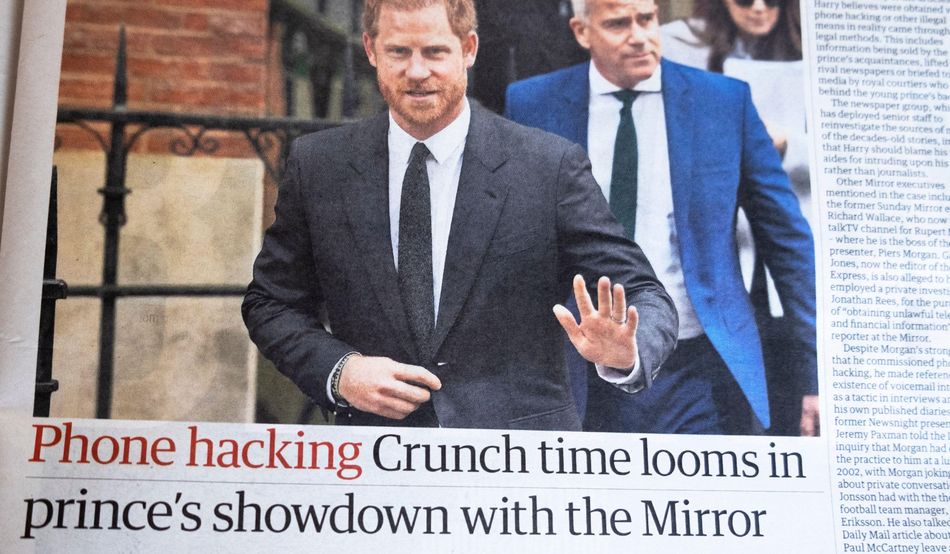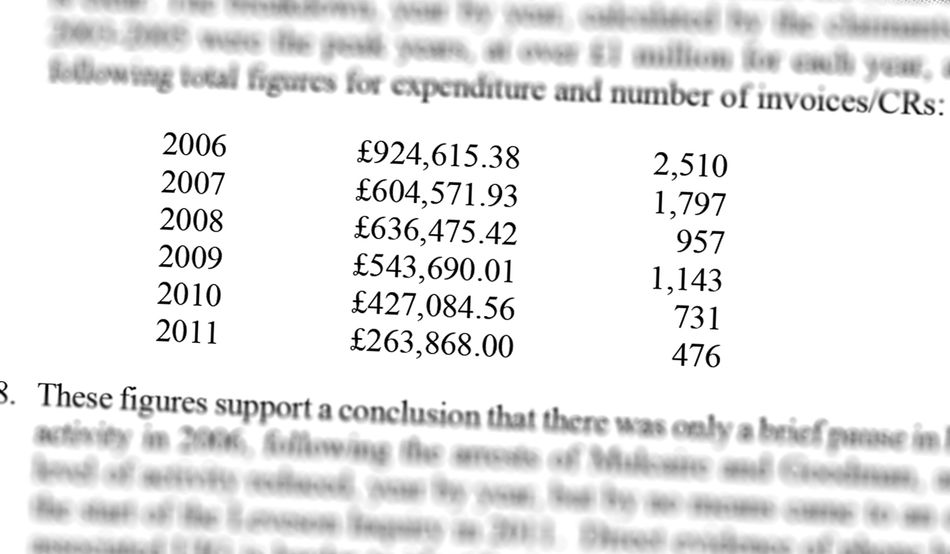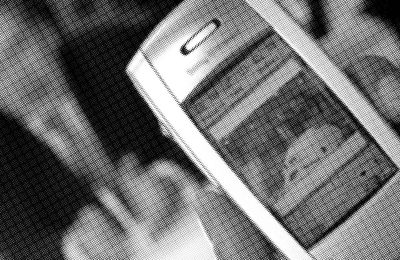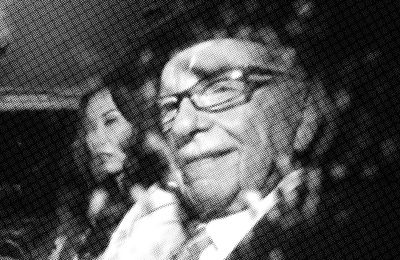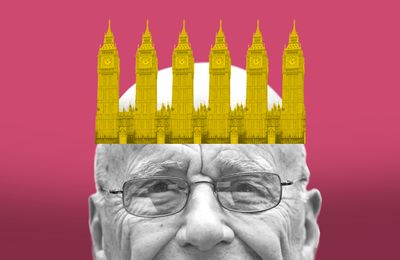Two of Fleet Street’s biggest news organisations carried on using unlawful methods—including the hacking of voicemail—for at least five years after they claimed to have stopped, according to evidence disclosed in court.
It shows that journalists from Mirror Group Newspapers and the Murdoch company continued to hire private investigators who used criminal methods as recently as 2011, even while the Guardian was uncovering the phone-hacking scandal, Scotland Yard’s Operation Weeting was investigating their crimes and Lord Justice Leveson was holding his inquiry into press standards. Both news groups were widely thought to have stopped unlawful information-gathering in August 2006, when police discovered the News of the World hacking phones in the royal household. Both groups now stand accused of lying to parliament, and to Leveson.
In activity that suggests a striking assumption of impunity, both groups continued to hack high-profile targets even though victims had the protection of the police and security services. In the case that Prince Harry brought against the Mirror Group last year, Mr Justice Fancourt found that, although hacking the prince’s phone was “incredibly risky”, MGN journalists had continued to do so after 2006, albeit “carefully and with control”. In the litigation against the Murdoch company, the High Court has seen evidence that as late as 2010 and 2011, in spite of their heightened security, the mobile phones of senior government ministers—including the prime minister, Gordon Brown, and the next government’s own law officer, Dominic Grieve—were targeted by calls which are believed to have been hacks. The combined total of these calls stretches into the hundreds.
In comments that received scant attention when Prince Harry won his case last year, Mr Justice Fancourt said in relation to the three MGN titles—the Daily Mirror, the Sunday Mirror and the People—“My conclusion is that voicemail interception remained an important tool of the kind of journalism that was being practised at all three newspapers up to and to a limited extent even during the Leveson inquiry, and it was fed by extensive unlawful information-gathering. It was still used to a significant extent, but not quite as habitually as before August 2006.”
Claimants suing the Murdoch company similarly allege that “the use of voicemail interception, blagging [impersonating someone else in order to obtain confidential information] and/or other unlawful obtaining of private information, including through PIs by or on behalf of journalists working for The News of the World and The Sun, was both habitual and widespread from at least as early as 1994 onwards until at least 2012.”
In the MGN case, the court ordered the company to disclose its history of invoices paid to private investigators. They show that from 2003—based on estimates made by the claimants—the group was paying more than £1m a year to PIs, many of whom specialised in using criminal methods. The figure for 2006 fell slightly below £1m, apparently because of the News of the World arrests in August, yet for each of the next three years MGN continued to pay more than half a million pounds to PIs. Even in 2011, with the Met’s Operation Weeting and the Leveson inquiry closing in, they paid more than a quarter of a million. Mr Justice Fancourt found that five of the most prolific PIs who remained on MGN’s books were the ones most used to help with the hacking of phones.
He found that, although the chief executive of MGN, Sly Bailey, had told editors in late 2006 that “there was to be no illegal activity” and the editors had agreed, “there was no evidence of any follow up by the editors”. The judge added that no witness had claimed that the company as a whole or any individual within it had decided to stop the hacking after the arrests in August 2006. Instead, he found that the company took extra precautions to avoid detection. He concluded “that those practising the ‘dark arts’ at all three newspapers took more care after August 2006 to avoid detection. This is highly likely to have meant increased use of burner phones and much less use of traceable phones, including MGN landlines.”
He also found that, after August 2006, MGN tried to conceal the unlawful activity by changing its accounting methods, so that payments to some of its most prolific private investigators were disguised as fees for journalists who had contributed to stories. One PI agency changed its name apparently “to create a greater level of concealment.” Beyond that, the judge found evidence that MGN deliberately misled parliament and Leveson in 2011–12, after two members of the board of directors—the chief executive, Bailey, and the legal director, Paul Vickers—“turned a blind eye” to the evidence of “extensive and habitual” crime in the company.
After the arrest in August 2006 of the News of the World’s private investigator Glenn Mulcaire, MGN conducted a search of its records to see if it had ever used him. “The search was either half-hearted, or deliberately limited in its scope, or both,” finds Mr Justice Fancourt. “At all events, it gave Mr Vickers and Ms Bailey the opportunity to assert that MGN had never used Mr Mulcaire and so, by implication, MGN had not done the kind of things that the News of the World had done.”
In the same year, the information commissioner published two reports revealing Fleet Street’s use of PIs to steal confidential data, including 1,626 transactions with MGN journalists; and a former Daily Mirror reporter, James Hipwell, publicly accused the paper of hacking phones. Mr Justice Fancourt noted that MGN failed to investigate: “I find that an investigation did not take place because Mr Vickers and Ms Bailey did not want there to be an investigation.”
The judge found that MGN knowingly misled parliament’s media select committee in 2007 by pretending that it was unable to identify journalists who had commissioned PIs to undertake unlawful work, and that the only unlawful practices that it could find were those relating to Steve Whittamore, the PI whose theft of confidential data had already been exposed by the information commissioner. “The lie was told that there were no unlawful practices other than in relation to the use of Mr Whittamore.”
He also found that MGN misled the Leveson inquiry in 2011 by pretending to have records of only seven PIs, four of whom had done no significant work since 2006, and by redacting the small number of records that it did disclose. “What is clear is that MGN did not want Sir Brian Leveson to have a full picture of the extent to which PIs were being used by its newspapers.”
At the same time as MGN was misleading Leveson, one of its titles, the People, actually started a new phone-hacking operation to find private information about the Coronation Street actor Michael Turner. Mr Justice Fancourt commented: “There was probably reticence because the Leveson Inquiry was sitting at that time, but they eventually did” deploy voicemail interception.
The judge concluded: “MGN emerged largely unscathed from the Leveson Inquiry. The decision was obviously taken at a high level that MGN’s interests were best served by keeping a lid on as much as possible of what had happened.” He added: “The contention that there was ‘no evidence’ of wrongdoing, or that MGN did not have the ability to investigate—which is what parliament and the Leveson inquiry were subsequently told—was simply untrue.”
In the same way, the judge found, MGN had tried to hide the truth from the victims of hacking who were suing the company. Analysing the years in which it resisted court orders to disclose the truth about its use of PIs, he found “a serious and culpable failure to give disclosure” and “a shocking failure by a large organisation with in-house lawyers and a leading external firm of lawyers to comply with their disclosure responsibilities.” When Prince Harry’s case came to trial, Bailey was called to give evidence. The judge commented: "My overriding impression was that Ms Bailey was a reluctant witness and evasive... Some of the answers that Ms Bailey gave to questions were literally incredible.”
The Murdoch company faces similar allegations, particularly about an alleged clash between the evidence it gave to the Leveson inquiry and the activity that was still going on in the background at around the same time. Based on the internal records that have now been disclosed, the claimants have told the High Court: “It is to be inferred that News International deliberately withheld from the Leveson inquiry details of numerous further private investigators, some of which were used by The Sun up to 2012, as well as the substantial payments made to these PIs whose names were deliberately withheld.”
When Leveson required the Murdoch company to disclose all payments made to PIs by the Sun from January 2005 to 2011, it claimed that these amounted to only £30,474 and that none of the payments had been for unlawful acts. Based on the new evidence, the claimants estimate that the true figure was some 30 times higher than that, totalling just under £1m, and that a mass of payments was made during that time to investigators who specialised variously in stealing confidential data, illegally accessing medical records and bribing police officers.
Witnesses from the Murdoch company gave evidence to Leveson about their ignorance of the use of PIs. After multiple disclosure orders from the High Court, the claimants have now obtained call data and PI payments that appear to show that named PIs were actively breaking the law on behalf of the Sun even after the scandal had erupted in July 2011—and that some of the Leveson witnesses themselves had commissioned the work.
The evidence suggests that in the five years after the arrests at the News of the World, a single senior journalist at the Sun, Nick Parker, made 1,763 calls to a specialist blagger, Christine Hart, “in order to unlawfully obtain medical and other private information about numerous individuals”; and that he made at least 715 calls to a PI agency that specialised in illegally accessing confidential data. In both cases, the calls continued into 2011. In both cases, the claimants infer, the Sun paid for these services in cash or by some other disguised means.
In some cases, the new evidence suggests that such behaviour was taking place even as the Leveson inquiry was sitting from November 2011. The allegations include claims that:
- Murdoch journalists used private investigators to gain illegal access to the tax records of the Liberal Democrat cabinet minister Vince Cable, who was a witness for Leveson.
- The Sun hired private investigators who traced the location of the mother of Hugh Grant’s child, who was then subject to such intrusion from journalists that she obtained a High Court injunction to stop it. Grant was himself a witness for Leveson.
- The crime correspondent of the Sun made “hundreds of calls during the Leveson inquiry” to a former detective, John Ross, who had a history of unlawful information-gathering, including bribery of police officers, and who continued to invoice the Sun for payments.
- Murdoch journalists hired a private investigator to find “the grieving family of Gary Speed, the Welsh football manager” on the day after he took his own life.
- Unidentified journalists from the Sun, who had been hacking the phone of Jude Law intermittently since 2004, continued to do so—with eight separate hacks in December 2011 alone.
The evidence to Leveson was, the claimants say, “grossly misleading, to such an extent that senior [Murdoch] executives would have known that was the case.”
*
News Group Newspapers—a Murdoch company—was given the opportunity to respond in detail to Nick Davies’s reporting ahead of publication; it offered a short general statement published elsewhere by Prospect. Following the release of most of Davies’s articles, the company responded in a further statement:
“The allegations in this series of articles are in large part contained in draft amendments to the Claimants’ case in their ongoing litigation against News Group Newspapers. The Claimants have applied to introduce these amendments into their pleaded case, but that application has not yet been decided by the Court.
As a result, NGN has not yet pleaded its response to those allegations. If the Claimants are granted permission to make these amendments, NGN will set out its response to them in its Defence to be served at a later date.
This series of articles therefore is entirely one sided and misleading and should be viewed with considerable caution.”

